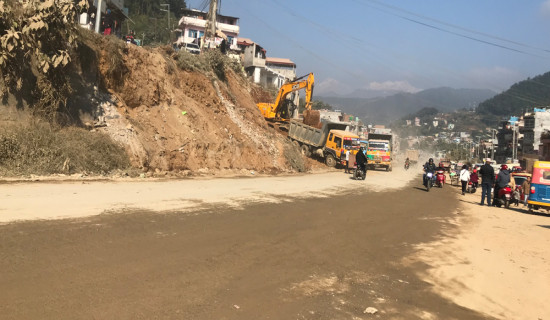- Saturday, 21 December 2024
Thailand's parliament set to choose prime minister, but it might not be the election winner
Bangkok, July 14: Thai lawmakers are gathering Thursday to select a new prime minister, a process whose outcome is far from certain even though the country's most progressive party won both the popular vote and the most seats in the House of Representatives in the most recent election.
The reformist Move Forward Party's victory in the May 14 election appeared to spell an end to nine years of unpopular army-supported rule. Two months later, it is unclear if that mandate for change will be honoured.
Parliament is due to vote on whether to make Move Forward's leader, 42-year-old businessman Pita Limjaroenrat, the country's prime minister. His party captured 151 of the 500 House seats and has assembled a coalition government-in-waiting. The eight parties in the coalition won 312 seats combined, a healthy majority.
But on Wednesday, the Election Commission said it concluded there was evidence that Pita had violated election law, and referred his case to the Constitutional Court for a ruling. If the court accepts the case and finds him guilty, he could lose his House seat, get kicked out of politics and face a prison sentence.
As Pita entered Parliament ahead of the vote on Thursday, he told reporters: “I will do my best to live up to the hope and support that the people have given me.”
The more immediate roadblock to Pita taking power is that the prime minister is elected through a joint vote of the House and the 250-seat Senate, whose members were hand-picked by the military-backed regime established after a 2014 coup. Pita, or any other candidate, needs a minimum of 376 votes to become head of government, meaning he would probably have to shake loose a large number of votes from the Senate, many of whose members appear openly hostile to him.
The biggest hurdle between the liberals backing Move Forward and the deeply conservative Senate is the campaign pledge of Pita’s party to amend a law that makes defaming the royal family punishable by three to 15 years in prison.
The monarchy is sacrosanct to members of Thailand’s royalist establishment, and even minor reforms that might improve and modernize the monarchy’s image are anathema to them. Move Forward’s coalition partners also have not endorsed the proposed legal change, and other parties ruled out joining the coalition over the idea.
Chonlanan Srikaew, the leader of the coalition partner Pheu Thai Party, nominated Pita to start Thursday's proceedings, which include six hours of debate before an up-or-down vote for prime minister. If Pita does not get the required number, another round of voting is expected to be held next week.
If Pita cannot win over enough senators, his options appear nil. The options for the eight-party coalition as a whole appear more viable.
One option is for the Pheu Thai Party, which used to be the royalist establishment’s top rival, to put forward one of its members as a candidate for prime minister. The party is closely affiliated with former Prime Minister Thaksin Shinawatra, a billionaire populist who was ousted in a 2006 military coup, in part because his popularity rubbed royalists the wrong way.
Thaksin-backed parties finished first in every election from 2001 until this past May but were blocked or forced from power each time. The 2014 coup seized power from a government that Thaksin’s sister, Yingluck Shinawatra, had formed.
Pheu Thai enrolled three of its members as potential prime minister candidates this year, including Thaksin’s daughter, Paetongtarn Shinawatra. Real estate developer Srettha Thavisin, another of the trio, is considered more likely to have his name put forward if Pita isn't elected. (AP)

















